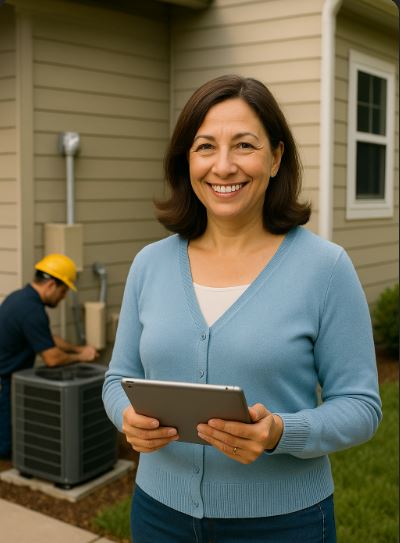How Tariffs Are Impacting Smart AC Controllers and the HVAC Industry
By Samantha Reyes | Smart HVAC Insights
When shopping for a smart air conditioner or a wifi AC unit, you might have noticed prices creeping higher or certain models becoming harder to find. That’s no coincidence—tariffs and trade policies are reshaping the HVAC market, especially for high-tech accessories like air conditioner controllers and smart HVAC products.
In this article, we’ll explore how tariffs on imported components affect the availability and pricing of smart AC controllers, and what it means for homeowners upgrading their cooling systems with smart technology.
What Are Tariffs, and Why Do They Matter for HVAC?
Tariffs are taxes imposed on imported goods to protect domestic industries or influence trade balances. Since many HVAC components—including smart modules, sensors, and controllers—are manufactured overseas, tariffs increase costs for manufacturers and distributors.
These extra costs often get passed to consumers, meaning:
-
Higher prices on smart AC controllers and wifi-enabled air conditioners.
-
Limited supply of some smart components due to disrupted supply chains.
-
Delays in product availability.
Impact on Smart AC Controllers and Accessories
Many aircon controllers and smart devices rely on imported electronics from countries affected by current tariffs, especially from China. This affects:
-
Price inflation: Expect slightly higher prices on universal and brand-specific controllers.
-
Limited options: Some innovative smart devices may become less accessible.
-
Longer lead times: Manufacturing delays and shipping bottlenecks increase wait times.
Despite these challenges, many manufacturers and suppliers are adapting through strategic sourcing and improved logistics to mitigate the impact on customers.
How This Affects Your DIY Smart HVAC Upgrade
If you’re considering upgrading your ductless mini split system or window unit with a smart controller, keep in mind:
-
Shop early: Prices and availability can fluctuate with tariff updates.
-
Choose trusted suppliers: Reliable dealers like The Furnace Outlet have relationships with manufacturers to help smooth supply chain issues.
-
Look for warranty and support: Tariffs sometimes cause delays in replacements; buying from reputable sellers helps ensure service and support.
Strategies Manufacturers Use to Mitigate Tariff Effects
To keep smart HVAC products affordable and available, manufacturers often:
-
Shift production to countries with lower tariffs.
-
Increase automation to reduce labor costs.
-
Invest in local assembly and distribution centers.
For example, some smart comfort by Carrier products now include components made domestically or sourced from tariff-exempt countries to keep pricing competitive.
Learn More About Tariffs and HVAC Industry Trends
For ongoing tariff news and detailed trade policy insights, check resources like:
-
U.S. International Trade Commission — official tariff updates and trade data.
-
Air Conditioning, Heating, and Refrigeration Institute (AHRI) — industry advocacy and analysis.
-
The Furnace Outlet’s Ductless Mini Split Collection — your go-to for smart, tariff-impacted HVAC products.
Related Articles in This Tariffs & HVAC Topic Cluster
-
How Trade Wars Influence Ductless Mini Split Prices
-
Supply Chain Disruptions and DIY HVAC Systems: What Homeowners Should Know
-
Smart AC Controllers: Navigating Price Changes Amid Tariffs
Navigating the evolving HVAC landscape can be confusing—but staying informed helps you make smart buying decisions. For the latest on ductless mini splits and smart cooling solutions, visit The Furnace Outlet’s DIY Mini Split Collection.







